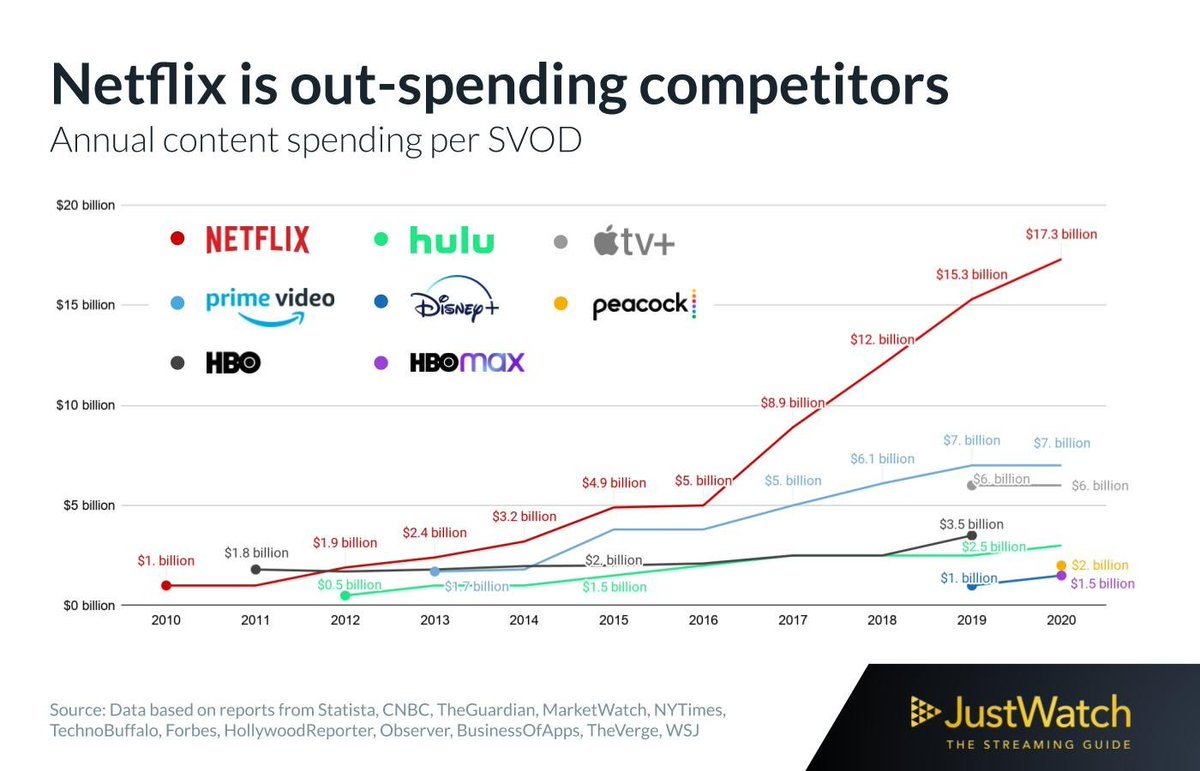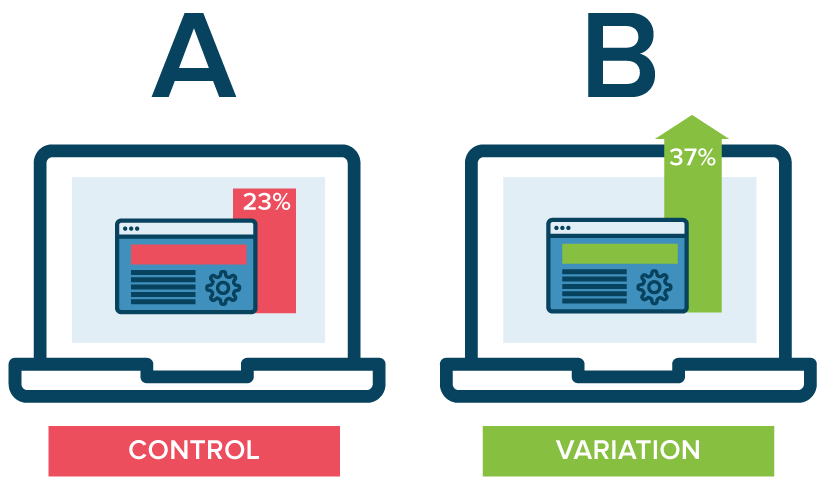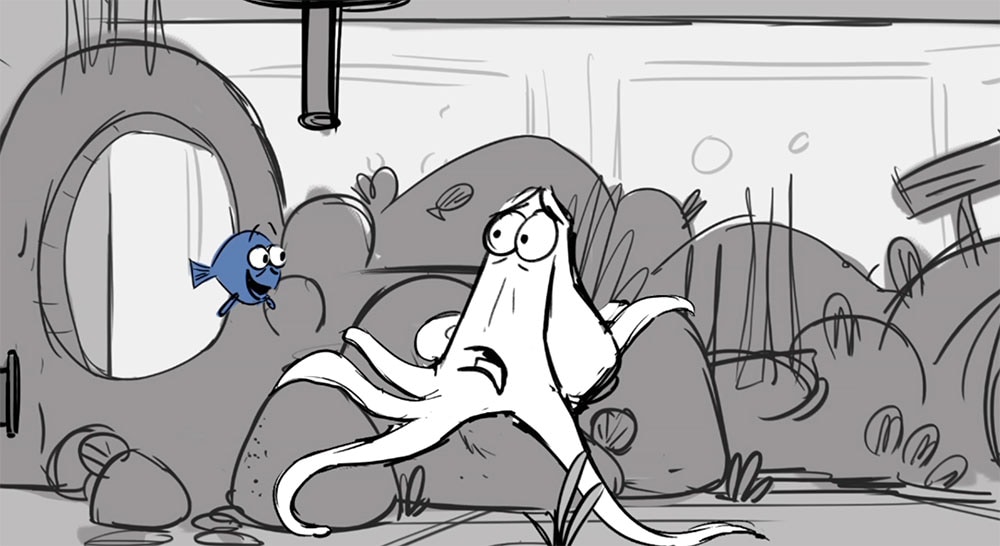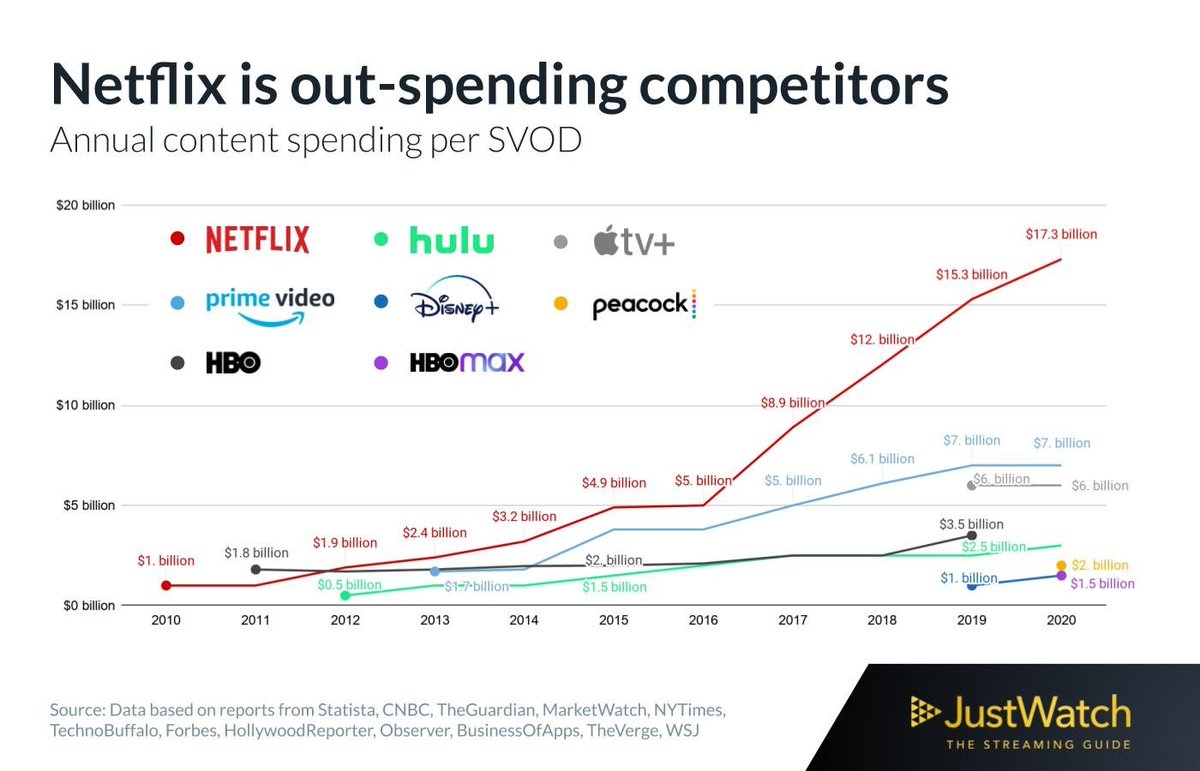For context, with so many streaming platforms, there& #39;s greater demand than ever for writers and directors:
• Netflix
• Disney+
• HBO Max
• Apple TV
• Hulu
• Peacock
• Amazon Prime
• CBS All Access
• Paramount+
Their combined budgets are enormous.
• Netflix
• Disney+
• HBO Max
• Apple TV
• Hulu
• Peacock
• Amazon Prime
• CBS All Access
• Paramount+
Their combined budgets are enormous.
Streaming services are starving for content.
If you can tell a great story* and you know how to get your foot in the door, there are now 10x more possibilities to succeed.
* Seeing my own stories come to life is what I& #39;m interested in.
If you can tell a great story* and you know how to get your foot in the door, there are now 10x more possibilities to succeed.
* Seeing my own stories come to life is what I& #39;m interested in.
Out of all the handbooks I& #39;ve written on my site (see my profile), storytelling is by far the hardest.
It& #39;s taken 10x longer than Marketing, Writing, and Muscle—combined.
It& #39;s taken 10x longer than Marketing, Writing, and Muscle—combined.
Why& #39;s storytelling so hard?
It& #39;s recreating a microcosm of life. So many variables. Humans are sophisticated observers of stories.
It& #39;s very easy to ruin a story with a few bad choices, and it& #39;s even easier to be cliché.
It& #39;s recreating a microcosm of life. So many variables. Humans are sophisticated observers of stories.
It& #39;s very easy to ruin a story with a few bad choices, and it& #39;s even easier to be cliché.
So my first step is finishing my screenwriting handbook:
It attempts to reverse engineer what makes a few genres tick and it provides a loose engine for generating stories within those genres.
It attempts to reverse engineer what makes a few genres tick and it provides a loose engine for generating stories within those genres.
Meaning, it doesn& #39;t recommend a formulaic framework for writing a story beat-by-beat.
If there were such a framework, all movies would be the same—and therefore boring.
Instead, I& #39;m trying to design a system for generating unique stories repeatedly.
If there were such a framework, all movies would be the same—and therefore boring.
Instead, I& #39;m trying to design a system for generating unique stories repeatedly.
One of the ways I& #39;ve made progress is by breaking down every scene of many well-constructed films.
Do this 100 times and you start to identify very clear patterns beyond introductory screenwriting advice.
The results have been really interesting.
Do this 100 times and you start to identify very clear patterns beyond introductory screenwriting advice.
The results have been really interesting.
Side note—here& #39;s my high-level deconstruction of film story components:
Once the screenwriting handbook is done, I will write 2-3 new screenplays using it.
This will take a long time.
I& #39;ll then rewrite them and get feedback until one hopefully turns out to be very good. We& #39;ll see https://abs.twimg.com/emoji/v2/... draggable="false" alt="😂" title="Gesicht mit Freudentränen" aria-label="Emoji: Gesicht mit Freudentränen">
https://abs.twimg.com/emoji/v2/... draggable="false" alt="😂" title="Gesicht mit Freudentränen" aria-label="Emoji: Gesicht mit Freudentränen">
This will take a long time.
I& #39;ll then rewrite them and get feedback until one hopefully turns out to be very good. We& #39;ll see
(I& #39;ve been toying with this for many years but I& #39;m only treating it as a priority this year. I originally came to California to pursue film, not tech.)
Okay, so let& #39;s say I have a great screenplay—but just on paper.
Where it gets interesting is in how I bring that story to life.
Let me start by addressing another key reason why many mainstream* movies are bad—beyond weak screenplays.
* This thread is NOT about *indie* films.
Where it gets interesting is in how I bring that story to life.
Let me start by addressing another key reason why many mainstream* movies are bad—beyond weak screenplays.
* This thread is NOT about *indie* films.
...The other cause, in my opinion, is a lack of iteration and "A/B testing."
A/B& #39;ing is a term often used in marketing. It refers to trying one implementation (A) versus another (B) to see which performs better.
A/B& #39;ing is a term often used in marketing. It refers to trying one implementation (A) versus another (B) to see which performs better.
Films need more of this. They do it on a micro level with multiple takes for dialogue, but they don& #39;t often do it with entire stretches of a film.
Because it& #39;s super expensive and time-consuming to do this.
And films have hard budgets and deadlines.
Because it& #39;s super expensive and time-consuming to do this.
And films have hard budgets and deadlines.
One studio, however, nails it: Pixar.
They A/B darn near everything it feels like.
This is part of how they consistently generate quality films.
They balance A/B testing with keeping their artistic intent and integrity.
They A/B darn near everything it feels like.
This is part of how they consistently generate quality films.
They balance A/B testing with keeping their artistic intent and integrity.
They have a leg up over live production studios: it& #39;s more efficient to rewrite low-fi scenes and run experiments when everything is done *inside a computer.*
But there& #39;s more to it than that.
Pixary also iterates on everything leading up to the production.
But there& #39;s more to it than that.
Pixary also iterates on everything leading up to the production.
Meaning, before they commit to producing a feature-length animated film, they do variations throughout the story ideation and mockup phases.
With far more discipline than live action films.
They do low-fi animatics—motion sketches with low-fi audio—to feel how the scene plays.
With far more discipline than live action films.
They do low-fi animatics—motion sketches with low-fi audio—to feel how the scene plays.
Do this repeatedly and you can partially de-risk against a bad scene or a bad act.
This is really the secret sauce of consistently great film output, in my opinion:
You NEED to give yourself multiple shots at bat BETWEEN the story <> shooting phase.
This is really the secret sauce of consistently great film output, in my opinion:
You NEED to give yourself multiple shots at bat BETWEEN the story <> shooting phase.
To recap so far:
I believe films need more of two things:
• More writers who understand what makes stories consistently good, e.g. Nolan, Tarantino, Pixar team
• Pixar-like A/B testing discipline before shooting
I believe films need more of two things:
• More writers who understand what makes stories consistently good, e.g. Nolan, Tarantino, Pixar team
• Pixar-like A/B testing discipline before shooting
I& #39;ve always wondered why live films don& #39;t do this more—run low-fi tests.
They seem to only do it for big action / set pieces.
But, software like Cinetracer increasingly lets you do it—even in 3D—with no technical skills.
For every scene. For cheap. The future is now here.
They seem to only do it for big action / set pieces.
But, software like Cinetracer increasingly lets you do it—even in 3D—with no technical skills.
For every scene. For cheap. The future is now here.
The closest thing I know of to this is when films shoot multiple endings to see what lands best with test audiences.
And this brings me to director Judd Apatow.
And this brings me to director Judd Apatow.
He& #39;s disciplined at A/B testing at a micro level:
He& #39;ll shoot many takes of comedic dialogue and run them by multiple audiences to measure the laugh volume of each joke variation.
He then leans toward the jokes that got the most laughs.
He& #39;ll shoot many takes of comedic dialogue and run them by multiple audiences to measure the laugh volume of each joke variation.
He then leans toward the jokes that got the most laughs.
Okay, so what does all this mean for my filmmaking journey?
I might do this:
1. Write many screenplays until one is well-received among professional readers.
2. Turn it into a feature-length, low-fi animatic. Iterate on it until the written word resonates in a visual medium.
I might do this:
1. Write many screenplays until one is well-received among professional readers.
2. Turn it into a feature-length, low-fi animatic. Iterate on it until the written word resonates in a visual medium.
Making a full-length animatic will cost money and a lot of time. But I& #39;m extremely interested in the craft, reverse-engineering it, and sharing my journey along the way.
3. Assess whether the animatic keeps people& #39;s interest and makes them *feel.* If it can pull that off with crude drawings, it& #39;ll have a decent shot at working as a live production film. Boom.
4. I& #39;ll A/B parts of the animatic and iterate my way to something that& #39;s great.
4. I& #39;ll A/B parts of the animatic and iterate my way to something that& #39;s great.
I& #39;ll then update the screenplay to reflect the animatic& #39;s learnings. ← This is key
Then I& #39;ll hand the screenplay to some folks who actually make movies at the streaming platforms.
(Services like Coverfly also help with this!)
Then I& #39;ll hand the screenplay to some folks who actually make movies at the streaming platforms.
(Services like Coverfly also help with this!)
Perhaps handing them the animatic too may be proof that this story has a shot at working on screen.
Either way, animatics help ME refine my writing process.
Maybe this is all unorthodox and unrealistic, but don& #39;t forget..
These companies badly need content https://abs.twimg.com/emoji/v2/... draggable="false" alt="😂" title="Gesicht mit Freudentränen" aria-label="Emoji: Gesicht mit Freudentränen">
https://abs.twimg.com/emoji/v2/... draggable="false" alt="😂" title="Gesicht mit Freudentränen" aria-label="Emoji: Gesicht mit Freudentränen">
Now& #39;s the time.
Either way, animatics help ME refine my writing process.
Maybe this is all unorthodox and unrealistic, but don& #39;t forget..
These companies badly need content
Now& #39;s the time.

 Read on Twitter
Read on Twitter




 Now& #39;s the time." title="Perhaps handing them the animatic too may be proof that this story has a shot at working on screen.Either way, animatics help ME refine my writing process.Maybe this is all unorthodox and unrealistic, but don& #39;t forget..These companies badly need content https://abs.twimg.com/emoji/v2/... draggable="false" alt="😂" title="Gesicht mit Freudentränen" aria-label="Emoji: Gesicht mit Freudentränen">Now& #39;s the time." class="img-responsive" style="max-width:100%;"/>
Now& #39;s the time." title="Perhaps handing them the animatic too may be proof that this story has a shot at working on screen.Either way, animatics help ME refine my writing process.Maybe this is all unorthodox and unrealistic, but don& #39;t forget..These companies badly need content https://abs.twimg.com/emoji/v2/... draggable="false" alt="😂" title="Gesicht mit Freudentränen" aria-label="Emoji: Gesicht mit Freudentränen">Now& #39;s the time." class="img-responsive" style="max-width:100%;"/>


